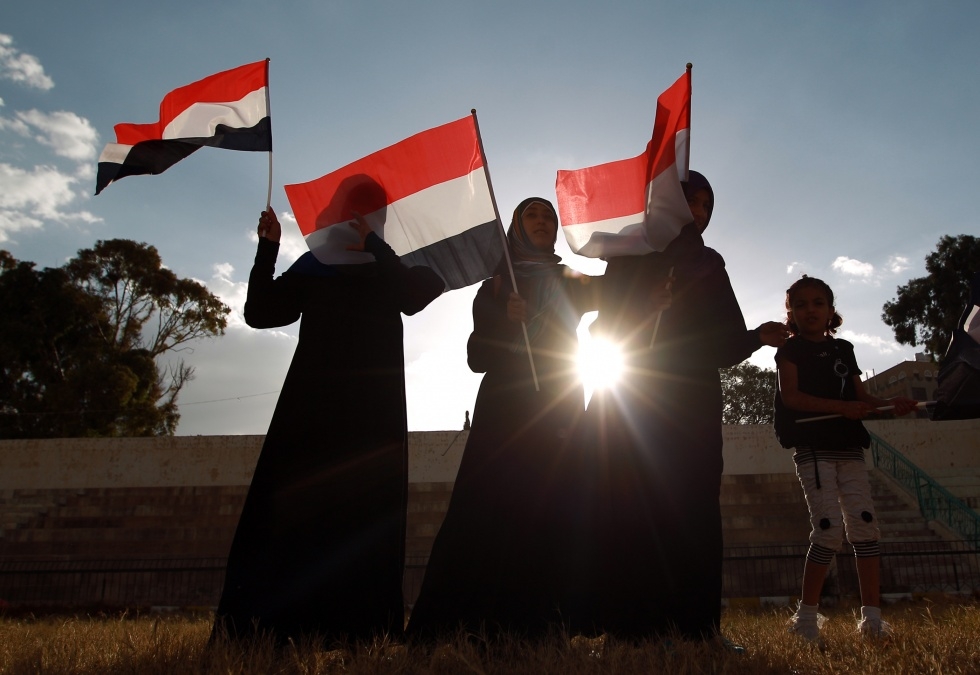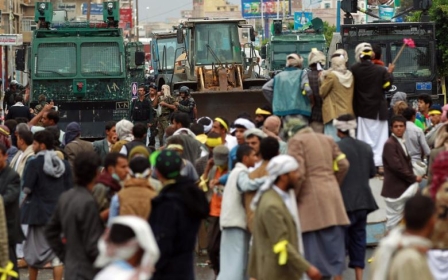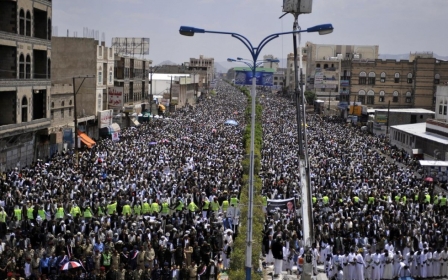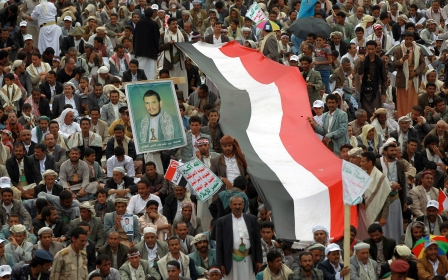Amidst 'frozen' negotiations, Yemen army, Houthis clash in Jawf

Eighteen people were killed in fierce fighting between Houthi Shiite rebels and government-allied tribesmen in northeast Yemen on Tuesday, a tribal source told Middle East Eye, as a UN envoy touched down in Sana’a to renew mediation efforts.
A gunfight that erupted Monday morning in Jowf province, killing twelve Houthi rebels and two local tribesmen, followed weeks of anti-government demonstrations by Houthi activists who are staging rallies and blocking roads in the Sanaa.
The violence has put pressure on the government who are scrambling to contain heightening unrest amongst fears that Yemen’s U.S.-backed transition may be unravelling.
The Houthis, a Zaydi Shiite group who fought an on-off civil war for a decade with the government, say they are taking a stand against government corruption and want better representation. Critics say the Houthis are trying to grab power and carve out a semi-independent state for themselves in the north - something they deny.
A shadow province
Much of the fighting has been focused in Jawf, a dusty, impoverished province home to nomadic tribes and camel farmers that borders Saudi Arabia. The province also straddles Saada, an effective state-within-a-state wrested from government control by the Houthis during the 2011 uprising.
Largely removed from the headlines, Jawf is a place where various groups - not just the government and the Houthis - are vying for political influence away from the spotlight in the capital, analysts say. Al-Islah, Yemen’s Muslim Brotherhood party, a Sunni group who have several seats in the current coalition government, are also battling the Houthis in Jawf.
“At this point, tribes that are politically affiliated with Islah, some of which have financing from individuals in Saudi Arabia, appear to be doing most of the fighting,” April Alley, Gulf analyst with the International Crisis Group, told Middle East Eye.
Alley says that the fight in Jawf is also connected to the power struggle in the capital.
"The Houthis see themselves as dominant players in the north. If they can show strength in Jawf, for example, they may strengthen their position vis-à-vis negotiations with the government.”
A Houthi army
The fighting comes a day after a Houthi spokesperson said negotiations between his group and the government are "frozen" despite the signing by both sides of a draft agreement.
Late on Monday the Yemeni government said that power lines to Sanaa in Jowf had been shelled by the Houthis who they referred to as a "Houthi-army-tribal-militia".
Rebels have maintained protest camps in the capital for weeks, blocking roads and paralysing the capital, as they pressure President Abdrabuh Mansur Hadi to sack the government and give them a greater say in power.
Alley says that the government has made mistakes but that the ball is now in the Houthi's court.
"In some ways Hadi hasn’t helped negotiations by pursuing his own forms of escalation such as pro-government rallies and by using too many negotiators in talks with the Houthis. But he has made some important and reasonable concessions along the way. He has been flexible. Now the burden is on the Houthis, they seem to be the ones holding up the negotiations."
Fraught mediation
Jamal Benomar, the UN envoy, held separate talks with representatives of the rebels and the government to mediate a deal that would end Yemen's political impasse.
The mediation comes after a potential deal was nearly reached last week, but it fell short due to lingering differences.
Houthi spokesperson Mohammed Abdel Salaam told Yemeni daily al-Oulaye on Sunday that the group condemns Benomar's "intervention" as well as a statement made by the G10 at the weekend.
In the statement, a group of G10 ambassadors, including representatives of the UK, the US, France and Japan, warned that the Houthis were responsible for the deteriorating security situation in the capital.
New MEE newsletter: Jerusalem Dispatch
Sign up to get the latest insights and analysis on Israel-Palestine, alongside Turkey Unpacked and other MEE newsletters
Middle East Eye delivers independent and unrivalled coverage and analysis of the Middle East, North Africa and beyond. To learn more about republishing this content and the associated fees, please fill out this form. More about MEE can be found here.




